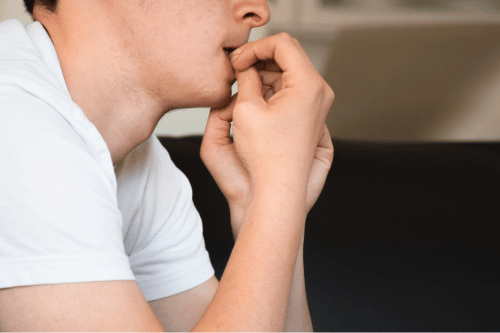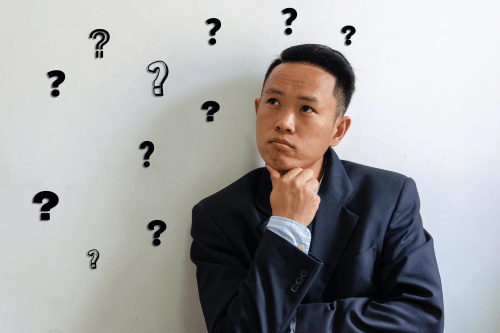Intuition vs Anxiety: Learning the Difference and Finding Inner Clarity
In our daily lives, we often face decisions that stir emotional responses. Some decisions come with a calm certainty, while others are wrapped in fear feelings. Understanding the difference between anxiety and intuition can help us respond more wisely. At Treat Mental Health Tennessee, we help clients develop tools to trust their inner voice while managing distress.
Defining Intuition and Anxiety
Treat Mental Health Tennessee
What is Intuition?
Intuition is often called a sixth sense. It’s a subconscious process that leads to a deep knowing without conscious reasoning. An intuitive sense often comes with a sense of peace or a subtle knowing, not a pushy demand.
Characteristics of Anxiety
Anxiety is usually tied to fear-based thoughts, anticipatory worries, and bodily sensations like a racing heartbeat, shortness of breath, or a feeling of fear. Unlike intuition, anxiety is marked by circular thought patterns and extensive reasoning. It feels urgent and heavy, often pointing toward negative outcomes.
Emotional and Psychological Overlaps
How Anxiety and Intuition Can Appear Similar
Both intuition and anxiety can produce a persistent feeling or internal voice urging action. A sense of urgency may cloud the message, especially for anxious people. It’s a common issue people face when making choices under stress.
Differentiating Emotional Triggers
The emotional signals from intuition feel grounded and present-focused. In contrast, anxiety pulls from fear of rejection, traumatic events, or the cycle of worry. While intuition offers a calm knowing, anxiety brings a feeling of apprehension or uneasy feeling.
Techniques for Distinguishing Between Intuition and Anxiety
Mindfulness Practices
Mindfulness helps in practicing intuitive awareness. By slowing down, we can identify bodily symptoms and locate the deeper sense underneath. Regular deep breaths support clarity and reduce levels of distress.
Questioning Urgency and Fear
Ask yourself: “Is this voice calm or anxious?” Anxiety often pressures you into fear-based action. Intuition waits quietly, with a sense of ease, not panic.
Listening to Physical Responses
Physical symptoms like a racing heart, shortness of breath, or muscle tension may reflect anxiety-driven responses. Intuition doesn’t create a burden of proof through panic. It whispers a casual voice or energetic guidance you feel in your core.
Strengthening Intuition
Engaging with Present-Moment Awareness
Intuitive people focus on the present, not imagined scenarios. Developing present-moment awareness helps reduce anxiety at times and builds trust in your intuitive abilities. This is a challenging practice, especially for those who experience chronic anxiety or a bit of relationship anxiety.
Techniques to Build Trust in One’s Inner Voice
Try journaling or a daily brain dump to clear anxious thought patterns. This gives space for your intuitive signals to emerge. Limit safety behaviors or avoidance behaviors, which feed the fertilizer for anxiety.
Treat Mental Health Tennessee
Impact of Personal Conditioning
How Past Experiences Shape Reactions
Our personal experiences, especially difficult experiences, can program us to expect danger. Over time, our brain fills in the blanks with fear, especially after a negative event. These reactions become conditioned responses, creating echoes of anxiety.
Recognizing Conditioned Responses
Conditioned reactions often carry excessive reasoning or emotional reasoning. Ask: “Is this fear from now, or an echo from before?” With this question, we can separate emotional signals from actual intuitive guidance.
Strategies for Trusting Intuition Amidst Anxiety
Balancing Rational Thought and Gut Feelings
Both reason and intuitive feeling have value. When both agree, you likely have a wise choice. If they clash, explore the source—is it a feeling of worry, or a calm certainty?
Decision-Making Processes in High-Stress Situations
In stressful times, anxiety clouds perception. To make authentic choices, reduce stimulus, breathe deeply, and delay decisions if needed. A degree of certainty will usually follow an intuitive sense, not an anxiety spike.
Role of Therapy
Utilizing Therapeutic Guidance
Therapy provides structure to explore the distinction between anxiety and intuition. At Treat Mental Health Tennessee, we offer behavioral therapy, Dialectical Behavioral Therapy (DBT), and trauma-informed care. These help clients understand their emotional responses and reduce distressing worry.
Empowering Decision-Making Through Counseling
Counseling teaches discernment abilities by identifying concrete evidence and separating it from imagined outcomes. With therapeutic support, clients learn to trust their internal voice and reject anxiety-driven responses. This leads to more responsible actions based on actual proof, not fear-based thoughts.
Real-Life Support at Treat Mental Health Tennessee
Clients at Treat Mental Health Tennessee receive tools to build a deeper connection to their core selves. We address anxiety disorder symptoms like a racing heart, shortness of breath, and excessive worry. Through therapy, mindfulness, and support, clients learn to distinguish intuitive guidance from anxiety from intuition.
We believe everyone has the potential to make authentic choices with clarity. For those struggling with an anxiety issue or seeking to strengthen their intuitive abilities, our programs provide a path forward. Sometimes, it takes professional care to quiet the noise and hear the calm voice within.
Famous Examples and Thought Leaders
Laura Day and the Practice of Intuition
Laura Day, a known intuitive life coach, describes intuition as “a belief without proof.” Her work supports building trust in that deeper sense we often ignore. She teaches people to use their current experience as a guide, not their cycle of worry.
Summary: Knowing the Key Differences
Understanding the key differences between intuition and anxiety can improve your mental clarity. Anxiety functions from fear and shows up with bodily sensations, panic, and emotional reasoning. Intuition feels calm, and centered, and offers a subtle knowing or sense of peace.
At Treat Mental Health Tennessee, we help clients tell the difference. Through behavioral therapy, DBT, and trauma-informed approaches, we give space for the intuitive signals to emerge clearly. If you’ve had many encounters with anxiety, therapy can offer the structure and tools to break the cycle of worry and reconnect with your deep connection to self.
Whether you’re battling extreme anxiety, conscious mind chatter, or the aftermath of traumatic events, support is available. We guide clients back to their intuitive guidance through professional insight, ethical advice, and evidence-based tools. Don’t let anxiety-driven responses dictate your future—your inner wisdom deserves to be heard.
Treat Mental Health Tennessee
FAQ's
Yes, in cases of chronic anxiety, medication may help reduce intrusive symptoms, allowing intuitive clarity to surface.
Yes, many people confuse anxious attachment or fear of rejection with gut instincts in romantic settings.
Absolutely. High intuition doesn’t prevent anxiety. In fact, intuitive people often absorb emotional signals more deeply.
Therapists help manage clinical anxiety with evidence-based care. Life coaches guide intuition but do not treat mental health conditions.













